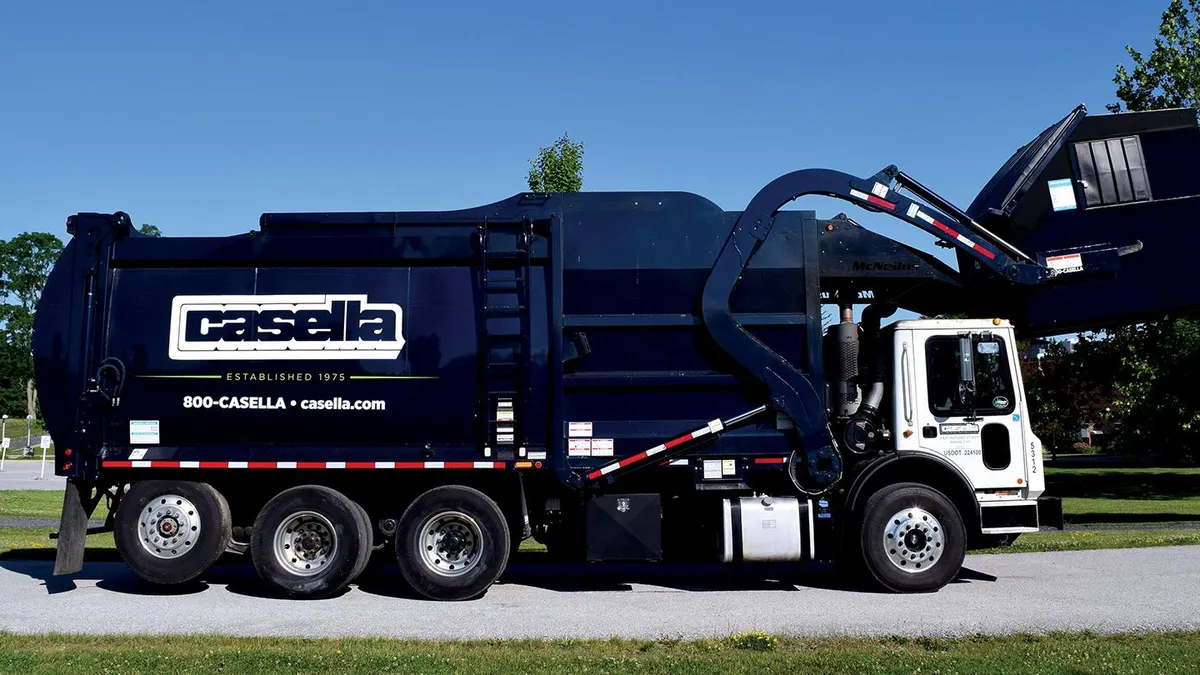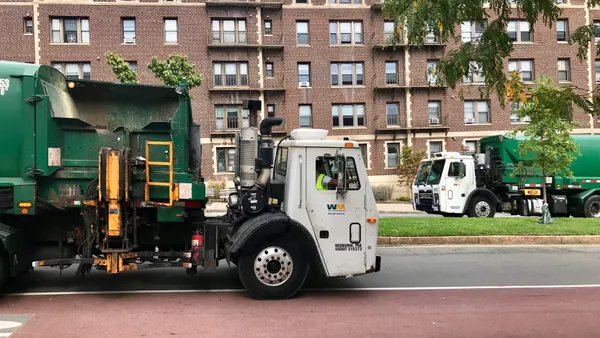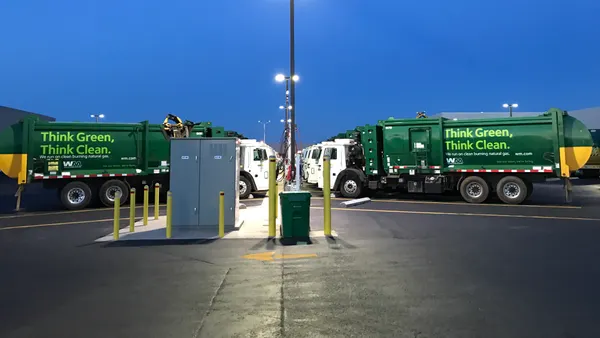Q2 Earnings
| Revenue | $165.6M |
| YoY Change | 7.6%▲ |
| Net Income | $1.7M |
Casella Waste Systems reported a 4.3% increase in solid waste pricing in the second quarter, raised revenue guidance for 2018 and is even exceeding free cash flow targets for its 2021 plan. Like the rest of its publicly traded counterparts, Casella expects recycling to stabilize next year. In the meantime, this shift is proving to be quite costly.
Recycling:
- Revenues for recycling were down $6.6 million YoY, including a 54% decline in commodity prices and a $3 million hit to adjusted EBITDA. In contrast, second quarter organics revenues were up by $3.6 million due to a new sludge transportation and disposal contract, and higher pricing.
- Casella also reported roughly $1.5 million in new variable recycling costs, including slower processing speeds, higher residue disposal rates and more expensive transportation to reach new markets. The company now expects adjusted EBITDA for recycling to be down $10 million for 2018.
- Both executives and analysts sounded more optimistic than in prior quarters, thanks to signs that more costs are now being recovered by Casella's sustainability/recycling adjustment fee. While that doesn't apply to third-party tonnage, the company is also working to raise those rates as well as renegotiate larger municipal contracts.
This marks the second quarter in a row that Casella has generated more revenue from organics than recycling. While this shift is largely due to unique circumstances, it's still a telling sign when a supplemental revenue stream that CEO John Casella has previously said wasn't living up to expectations is doing better than the more established recycling business.
That dynamic is expected to change in the near future though, with lots of talk about wringing more revenue from municipal contracts. In the first quarter call, Casella mentioned an "aggressive" approach to force majeure and, on this latest call, CFO Ned Coletta mentioned how "our teams did a great job renegotiating a few big municipal contracts." Most of Casella's other big municipal contracts are up for renewal in 2019, so the company will have new chances to reap a higher return. Coletta estimated the company is losing out on around $5 million now due to those older contract terms.
Quarterly reports from larger national players Waste Management and Republic Services, which also have many large municipal contracts, indicate this renegotiation can be expected from companies across the board.
Among Casella's large municipal contract renewals coming up, Boston's will be one of the most interesting to watch. The city is close to establishing a "zero waste" goal that some hope will change the way it sets wage requirements for recycling workers, but that may also be complicated by more costly realities of current commodity markets.
Labor:
Casella's labor costs have been up at MRFs due to new quality standards and the company reported a $2 million increase in general and administrative costs YoY due to a variety of factors. Since bringing on a new vice president of human resources last year, the company has taken new steps on employee retention and Casella himself told Waste Dive in April that "there can be absolute career paths for every position in the company."
- Without going into specifics, COO Ed Johnson said the company has now raised wages on a regional basis because "there were certain markets that were below scale and those markets happened to be our highest turnover."
- While cautioning that it's "probably not statistically valid at this point in time," Casella said the company has seen a 20% reduction in turnover for mechanics over the last few quarters.
- Casella also said the company has been re-evaluating "our own self-inflicted policies in terms of driver age" to target younger applicants.
Looking Ahead:
- Increasing landfill returns is the first pillar of Casella's 2021 plan, and during Q2, average pricing per ton was up by 6.7% and volumes were up by about 3.6% YoY. Casella believes the company is well-positioned to benefit from tightening disposal capacity in the Northeast because of unutilized space in New York. No mention was made of a pending expansion proposal for the company's major Coventry site in Vermont.
- Casella expects to have about $6.5 million of non-recurring capital expenditures for the year due to acquisitions, the bankruptcy of a competitor that necessitated quick purchase of new trucks and containers, and a $2 million cost related to a transfer station fire in New York.
- Casella said the company is "actively working on acquiring several businesses with combined annual revenues of over $40 million." He outlined more than $500 million worth of potential in the region, especially now that smaller companies might be feeling pressure from cost inflation on multiple fronts.













